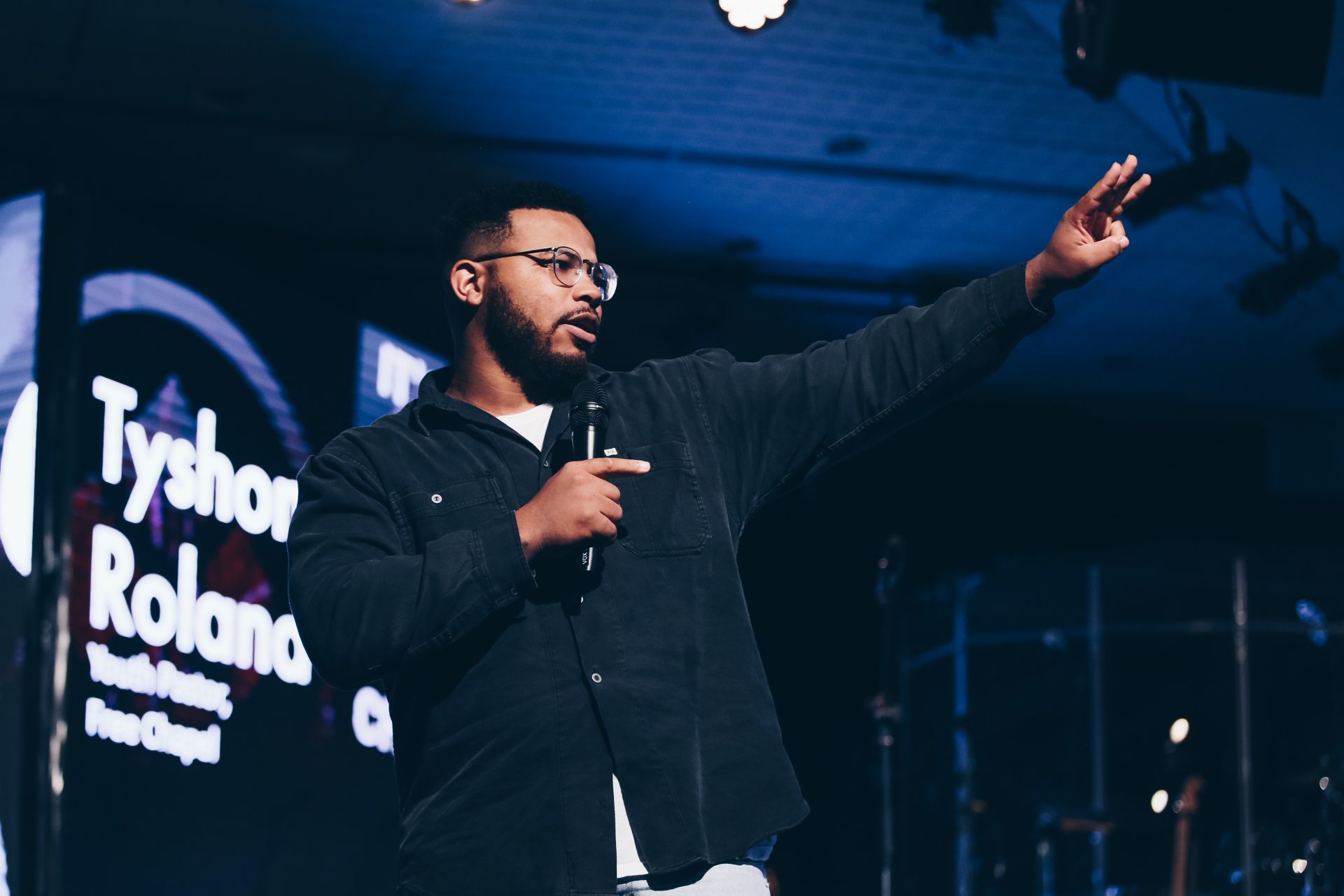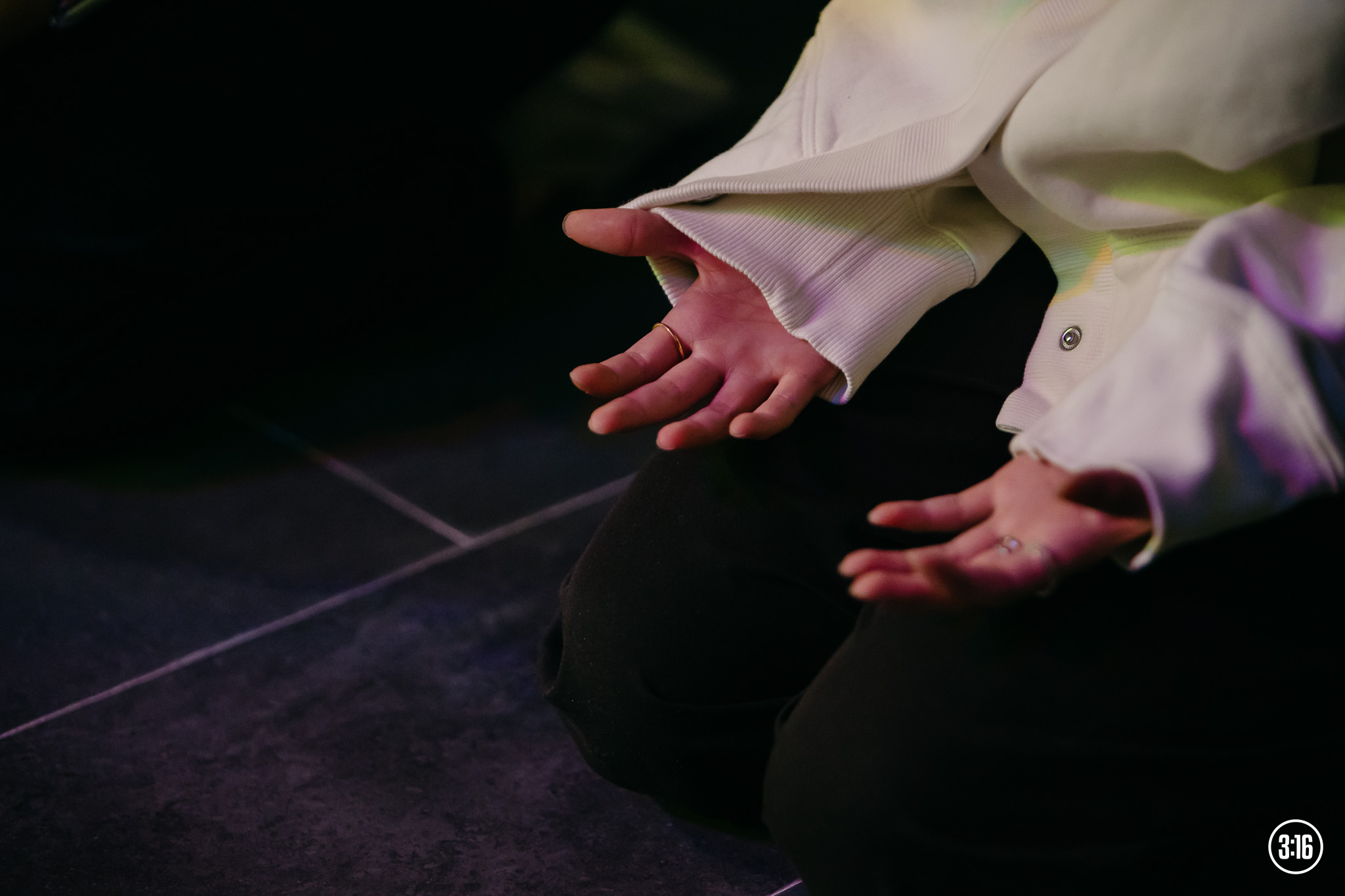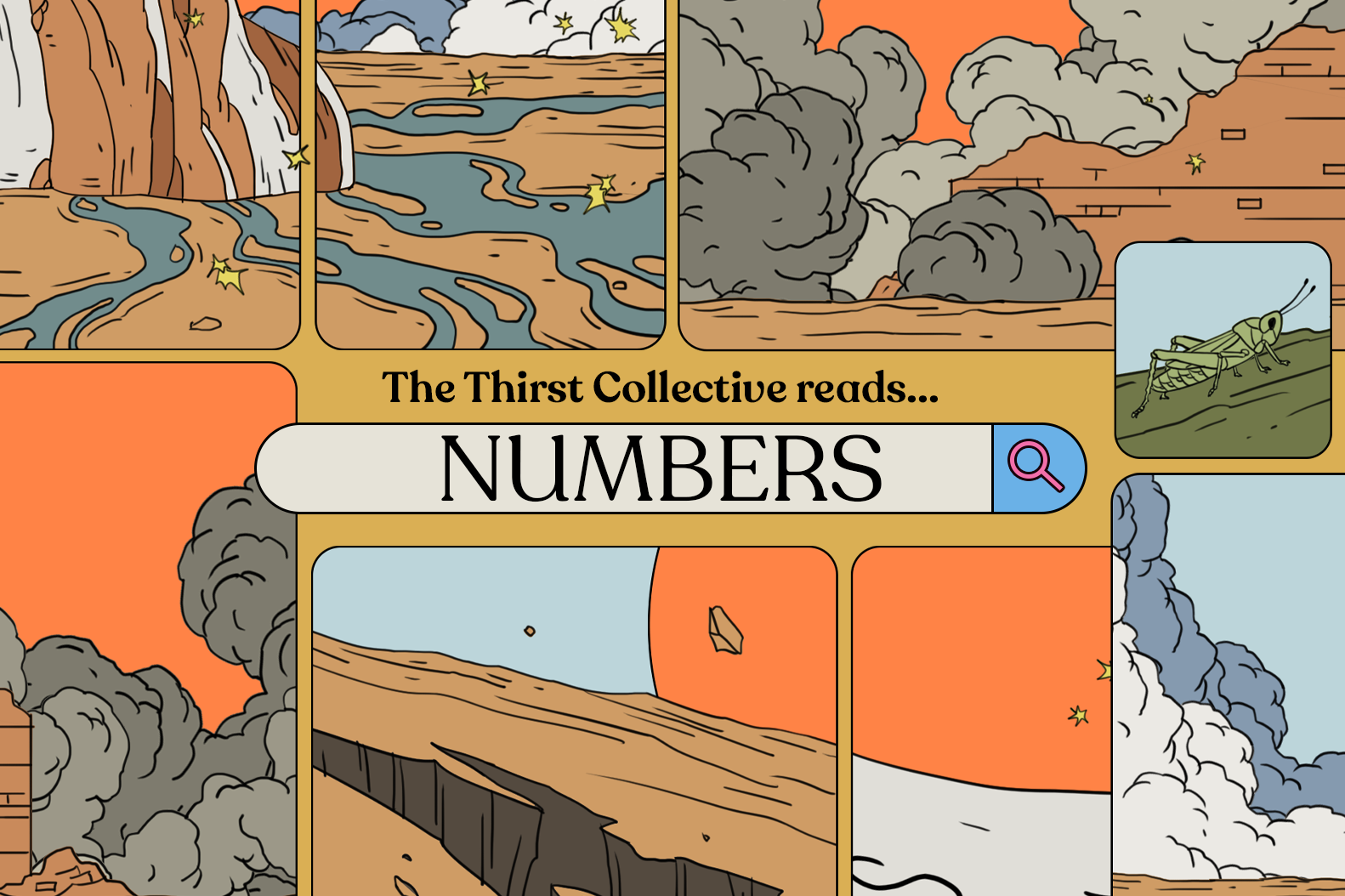It was counter-intuitive for a conference themed GO, when youth pastor Tyshone Roland of Free Chapel Youth Church, USA, took the stage on the first night of the FOPx Conference 2019 and opened with a message on staying with God, even in the place of pain.
Reading from Ephesians 6 on the armour of God, Roland drew attention to verse 13: “Therefore put on the full armour of God, so that when the day of evil comes, you may be able to stand your ground, and after you have done everything, to stand.”
“Sometimes the greatest thing a Christian can do in the midst of adversity is just stand,” he repeated the words of the Apostle Paul. “Can you just stand even when it doesn’t look like God is standing with you, be faithful even when it doesn’t feel like He’s being faithful to you?”
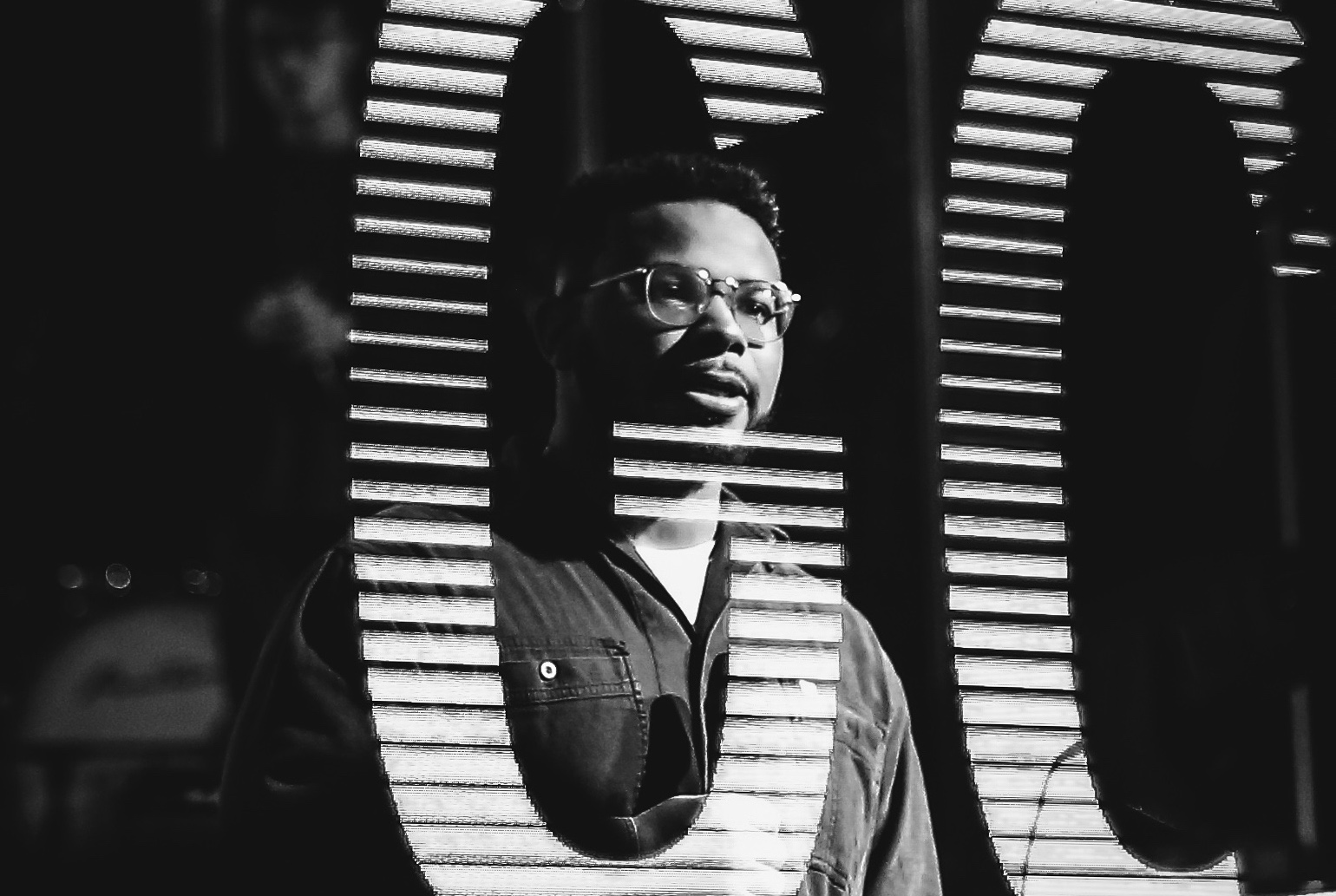
This message was birthed out of his own difficult childhood, from growing up without a father, losing his brother at a young age and then struggling with a pornography addiction at 14 – all while in church.
“But I was told to just stay in the church. Not to get mad at God. Just stay and watch how He was going to use me through these circumstances.”
A little more than a decade later, the 26-year-old pastor has seen the dream he had since 12 – to preach the Gospel around the world – come to pass. “The thing about standing is that it doesn’t make sense in the beginning,” Roland said. “But when you get through it and you look back, it makes sense.
“Maybe the answer that’s in the Scripture doesn’t seem like it’s enough for the problem that’s in your soul, maybe we’re standing (and) just standing alone doesn’t feel enough, but it’s enough.
“It’s okay if you’ve done everything that you know how to do – read your Bible, prayed, fasted, worshipped – and all you can do left is stand. That is enough.”
STAY WHERE YOU ARE
Young people aren’t the best at staying in one place for long, but it takes discipline and obedience to be faithful in the small things and the hard times, he continued.
Standing where you are is such a simple answer for life’s complicated matters and can feel so insufficient in a season of senseless pain – but we must remember who we’re standing on: the foundation that is Jesus Christ.
“Paul was sitting in shackles when he spoke those words in Ephesians. He had every evidence and reason to quit – and we all have a reason to quit. When we experience emotion at a heightened level, we think we know more than Jesus, we want to be the pilot of our lives,” Roland said, sharing his experience of panicking in the midst of turbulence on the plane.
“So many of us decide to do this, thinking we know better even though we’re not trained or designed to be the pilot. And Jesus is saying, ‘Just stand, stay put, don’t leave.’
“Don’t make a permanent decision with a temporary pain. The Bible calls it a momentary affliction. It hurts right now, but it’s not going to be like this forever. Trust the pilot. The best thing you can do is stay.”
The antidote for our complex problem is actually that simple, because Jesus came to make it simple – to believe in Him as our Lord and Saviour and trust that He always has a better plan for our lives than we do.
“I want you to be able to sleep through the turbulence,” Roland urged the youth. “You’re going to be that person who will, in the middle of the confusion, frustration or any circumstances, stand on the Rock because you know who has you in the situation.”
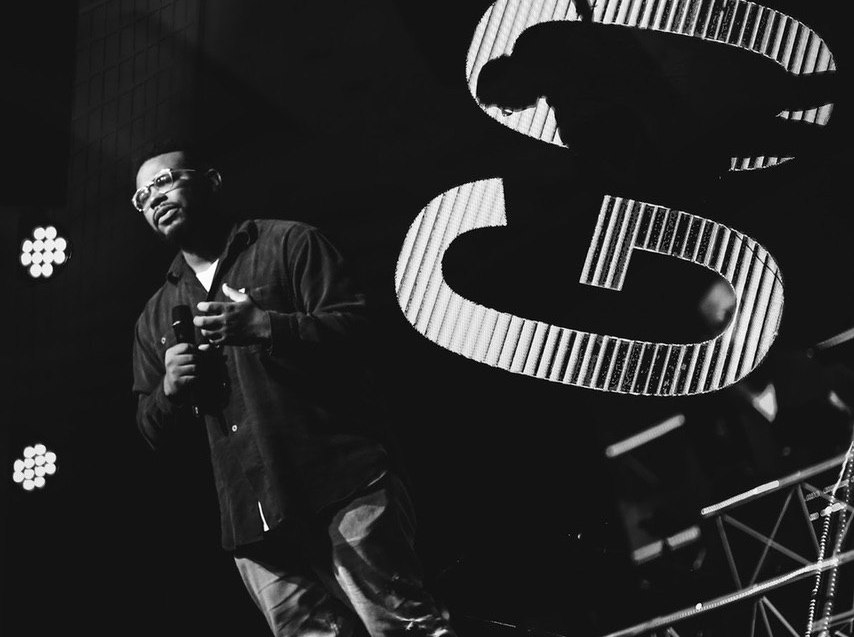
ARE YOU LOOKING FOR JESUS?
The truth is, Jesus is right there with us in our place of pain, even when we find it hard to see Him in our discouragement and disappointment.
Roland expanded on his message in the morning of FOPx Day 2, referencing Mary Magdalene’s experience of looking for Jesus after she discovered His body to be missing from the tomb.
Three times, Mary attempts to find out what has happened to the body of Jesus. First, she called on Peter and John, who came to the tomb, only to leave her after confirming the body was missing. Second, she re-enters the tomb, meets the two angels inside and instead of marvelling at their presence, resolutely continues looking for Jesus.
On the third time, she turns and sees Jesus, but mistakes Him for the gardener and asks Him if He has carried the body of her Lord away.
Roland then gave the crowd three reasons for Mary’s inability to see Jesus, when He probably had been there all along.
1. We’re blinded by pain
“She accuses Jesus of stealing Jesus,” Roland said, to laughter across the room. “Are we accusing Jesus for what’s going wrong with our life?
“Are we blaming Jesus for what we’re going through, saying, ‘if You really loved me I would have been born into a different family, would have had more money, wouldn’t have gone through that traumatic incident…’
“Have we begun to look at life as though Jesus was not there the whole time?”
When all we see is our pain, we might not even recognise our answered prayer. We forget that Jesus has promised never to leave us and to be our ever-present help.
2. We’re looking in the wrong place
Sometimes we don’t see Jesus because we are insistent that He has to show up in the exact place and way we imagine. Like Mary, who went back to inspect the place in the tomb where Jesus’ body was supposed to be at least three times, yet not even recognising Him when He appeared to her.
“We put weird parameters and rules on our relationship with God,” Roland said. “If only I had the right family, the right friends, finances… If God made this problem go away…”
“Maybe Jesus is right there in the situation, but we’re so specific about what we want Him to do that we miss Him altogether.
“You’re looking for the wrong thing if you think Jesus is not here.”
3. We’re in a season too dark to see in
Reading from the very first verse of John 20 again, Roland pointed out that he had often wondered why Mary did not recognise Jesus, but he believed the answer could be found here: It was still dark when Mary had gone out to the tomb.
“Early on the first day of the week, while it was still dark, Mary Magdalene went to the tomb and saw that the stone had been removed from the entrance.” (John 20:1)
“Sometimes we don’t recognise things in our darkest seasons,” he said. “We don’t recognise Jesus when all we see is unmet expectations, disappointment with people, discouragement when things don’t go our way… It’s easy to think that Jesus is not there, even if we know it’s not true but intuitively it feels like it is.
“And our intuition can preach sermons to us that are not true. We think Jesus doesn’t care, forgetting that He put skin and bone on, came to this earth, was tempted in every way but did not fall, fulfilled prophecy, kept the Law and went to the Cross for us, becoming the embodiment of our sin.”
STOP LOOKING, START LISTENING
But what made Mary recognise Jesus finally? It was only when Jesus called her name and she heard His voice that her eyes were opened.
“Jesus said to her, ‘Mary.’ She turned toward him and cried out in Aramaic, ‘Rabboni!’ (which means ‘Teacher’).” (John 20:16)
“It wasn’t that she found what she was looking for, where she was looking for it,” Roland shared. “It was when she stopped looking and started listening.
“And when we stop looking for Jesus to do something specifically in our life and listen to His voice, this is when we finally see Him.”
The key to listening to His voice is reading our Bibles, he declared. “Do you know what preaches better than the best preachers? The Word!
“When life gets hard, I don’t look for things anymore – I just never close my Bible.”
He concluded: “At a young age, God speaks to people. He spoke to Samuel, to David, to Joseph – all in their youth.
“And He’s speaking to young people who are not looking for a specific thing, but are just listening for His voice.”
The 2019 FOPx GO conference is happening on November 21-23, 2019 at Bethesda Cathedral. For more information or to register, visit their website. Night sessions are free.



